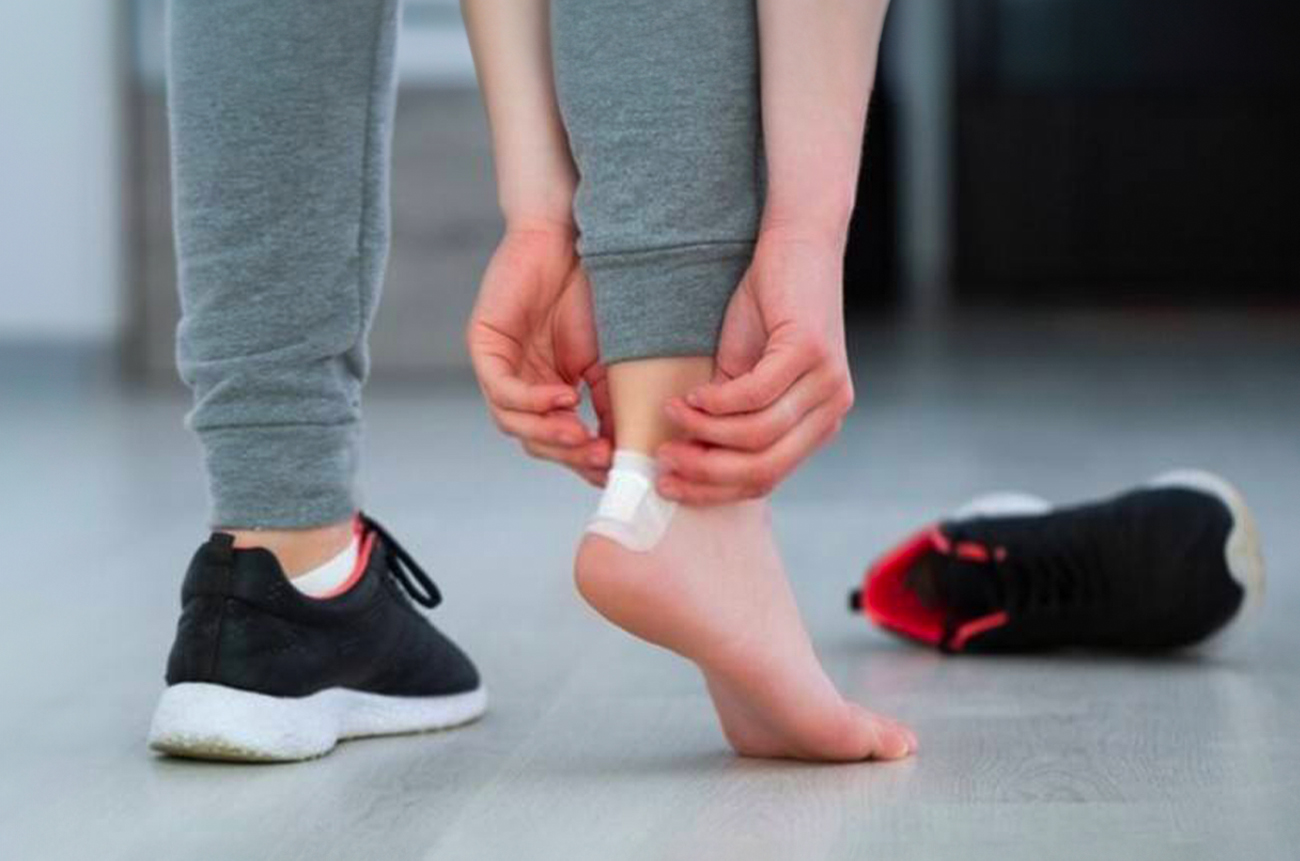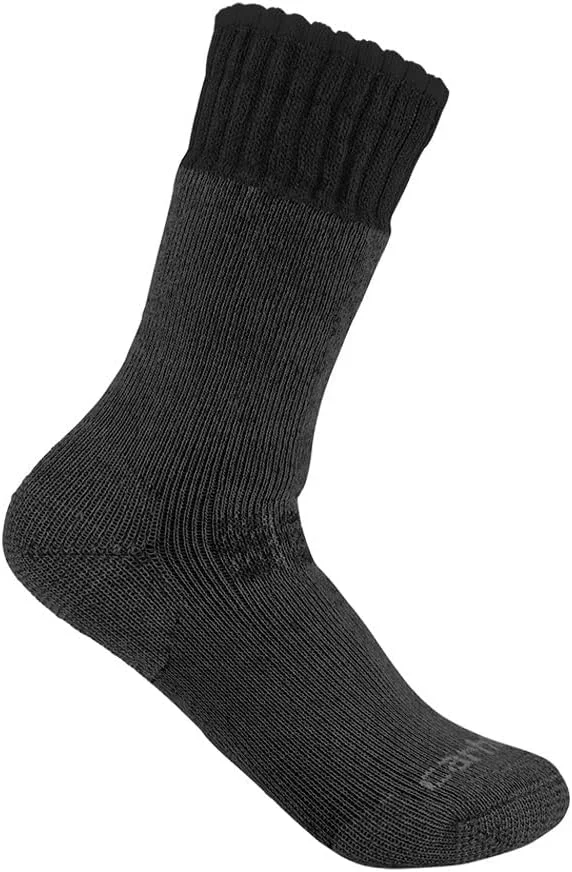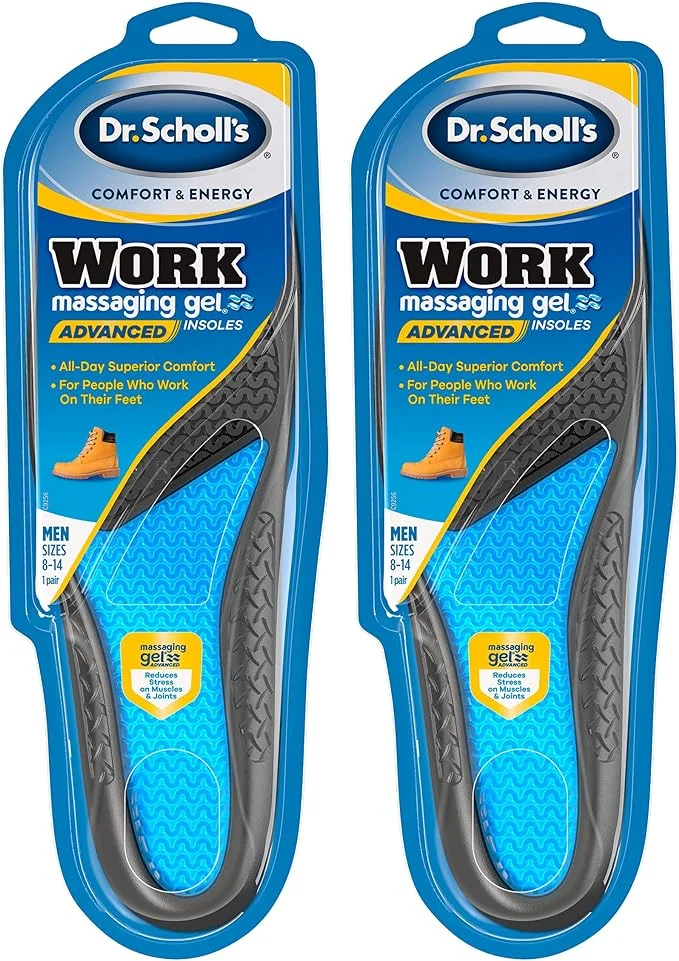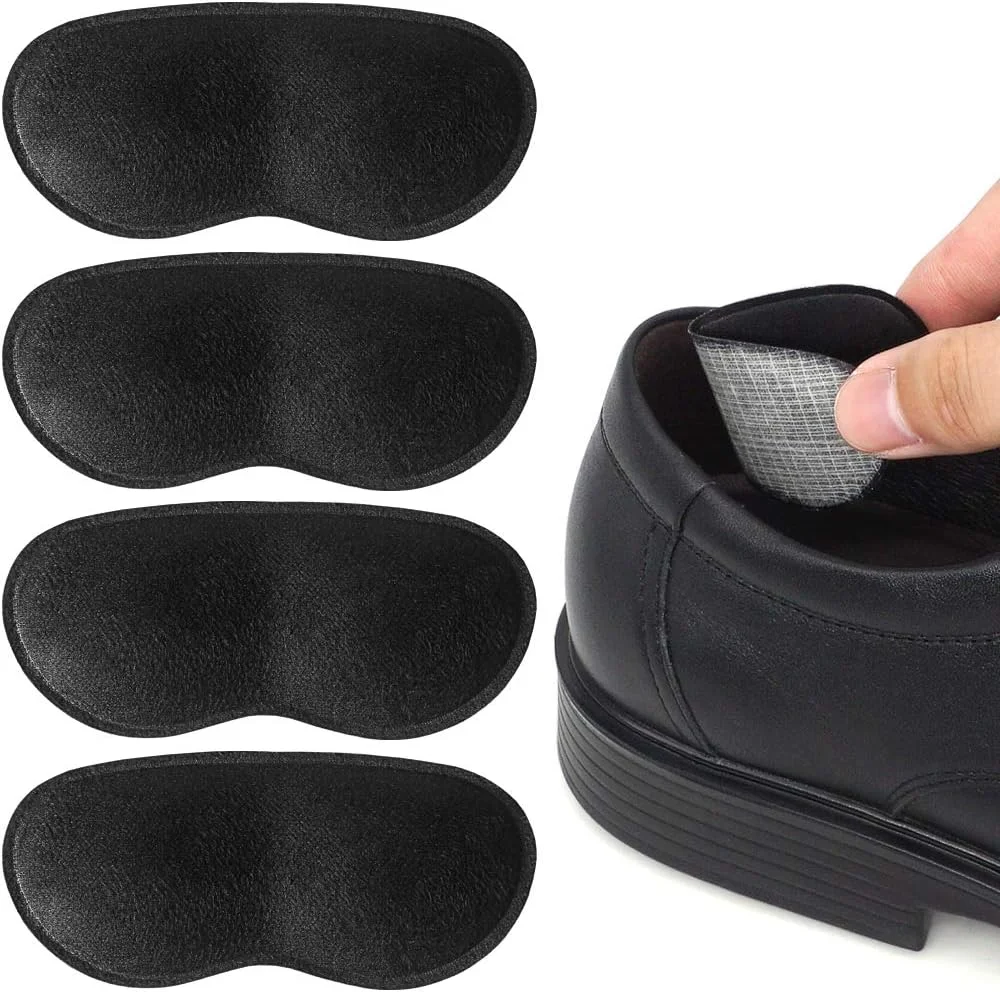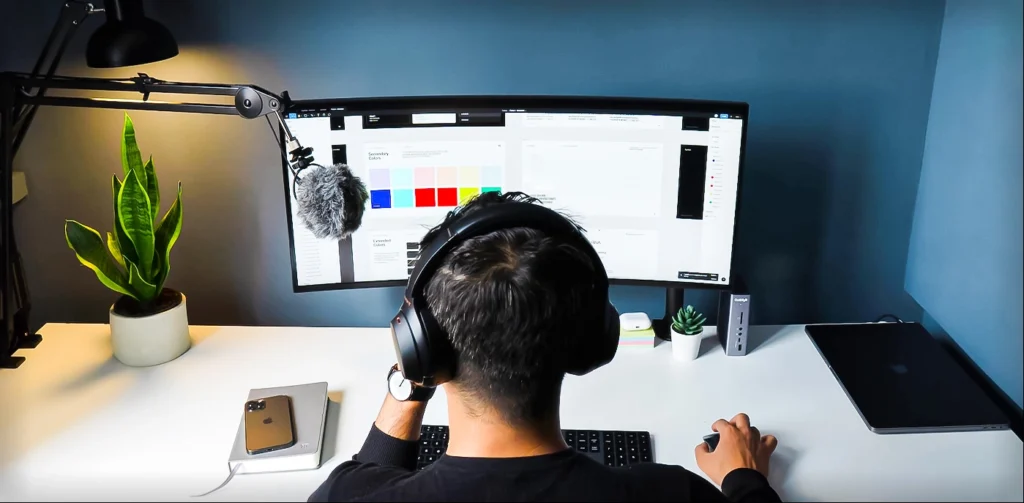We’ve all been in that situation – you think your boots are the correct size, but they feel like sandals. I tried wearing two pairs of socks to prevent it, but it’s difficult and makes my feet sweaty quickly.
When your heels slip, you may walk funny without realizing it. Your feet might feel uncomfortable, and your toes could start hurting because You’re gripping too tightly.
After trying different things, I figured out how to stop my boots from slipping at the heel. I want to share it so you don’t have the same problem.
Things Required to stop your heel from slipping
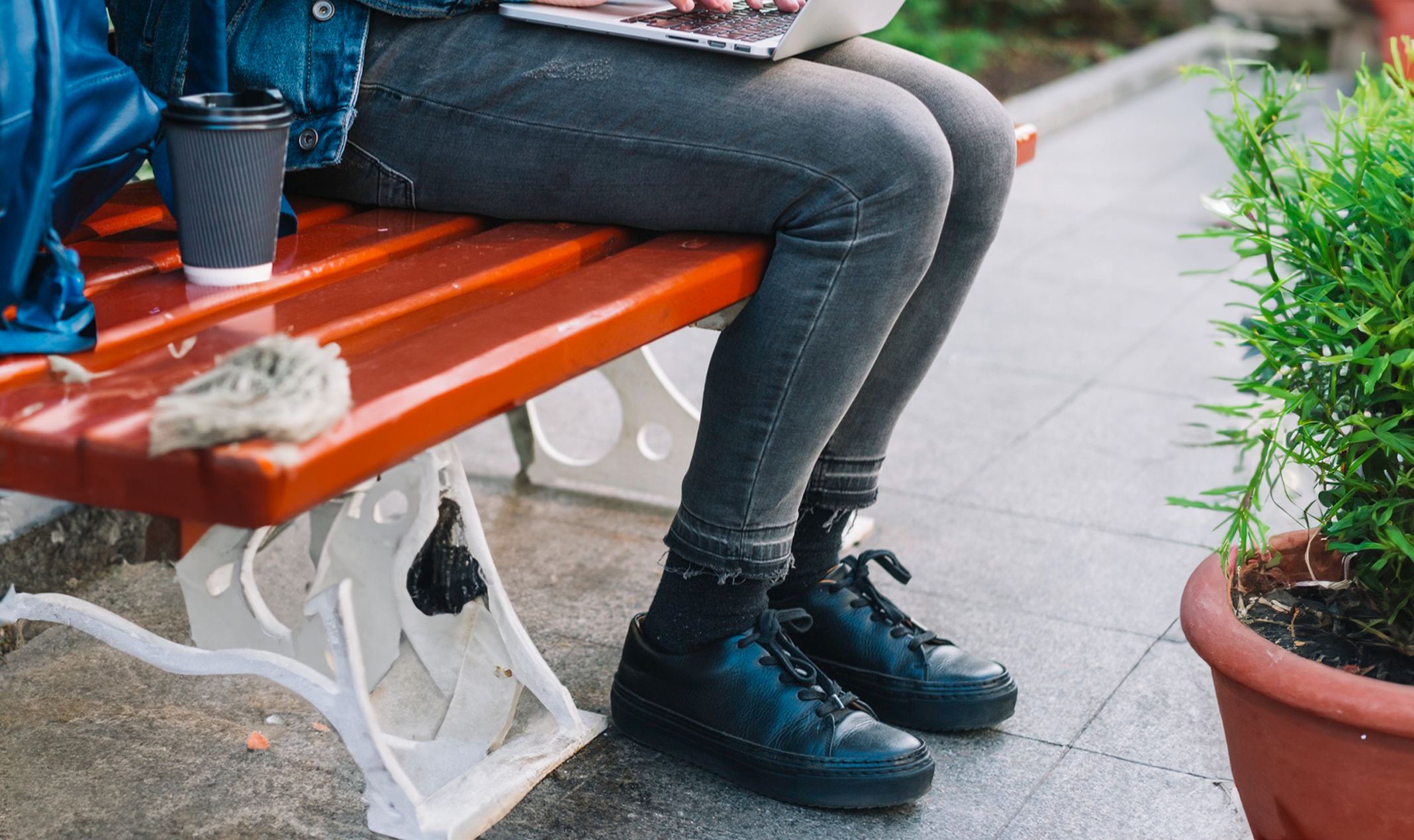
If your heel is moving too much in your work boots, Here are things you might need.
◈ Heel pads
◈ Work socks
◈ Scissors or a sharp knife
◈ Tongue pads
◈ Toe pads
◈ Padded insoles
5 Tricks to Stop Your Feet from Slipping in Work Boots
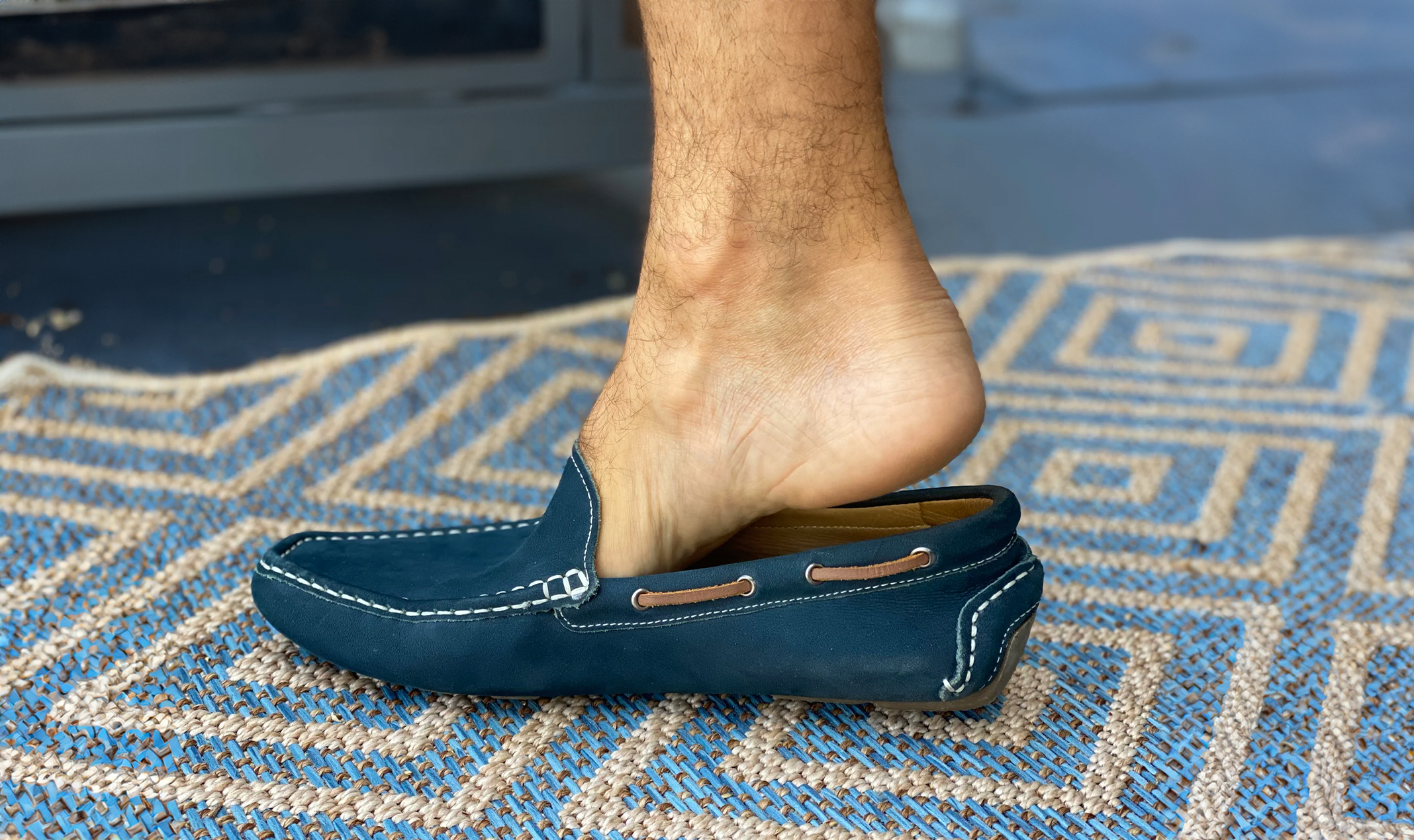
The top way to prevent your heel from slipping is to figure out where your boots have extra space and then make it less. No worries, you won’t need to fill your boots with tissue paper. Just like the person who created those little drink umbrellas. There’s something made for every part of your boot.
1. Wear the Suitable Work Socks
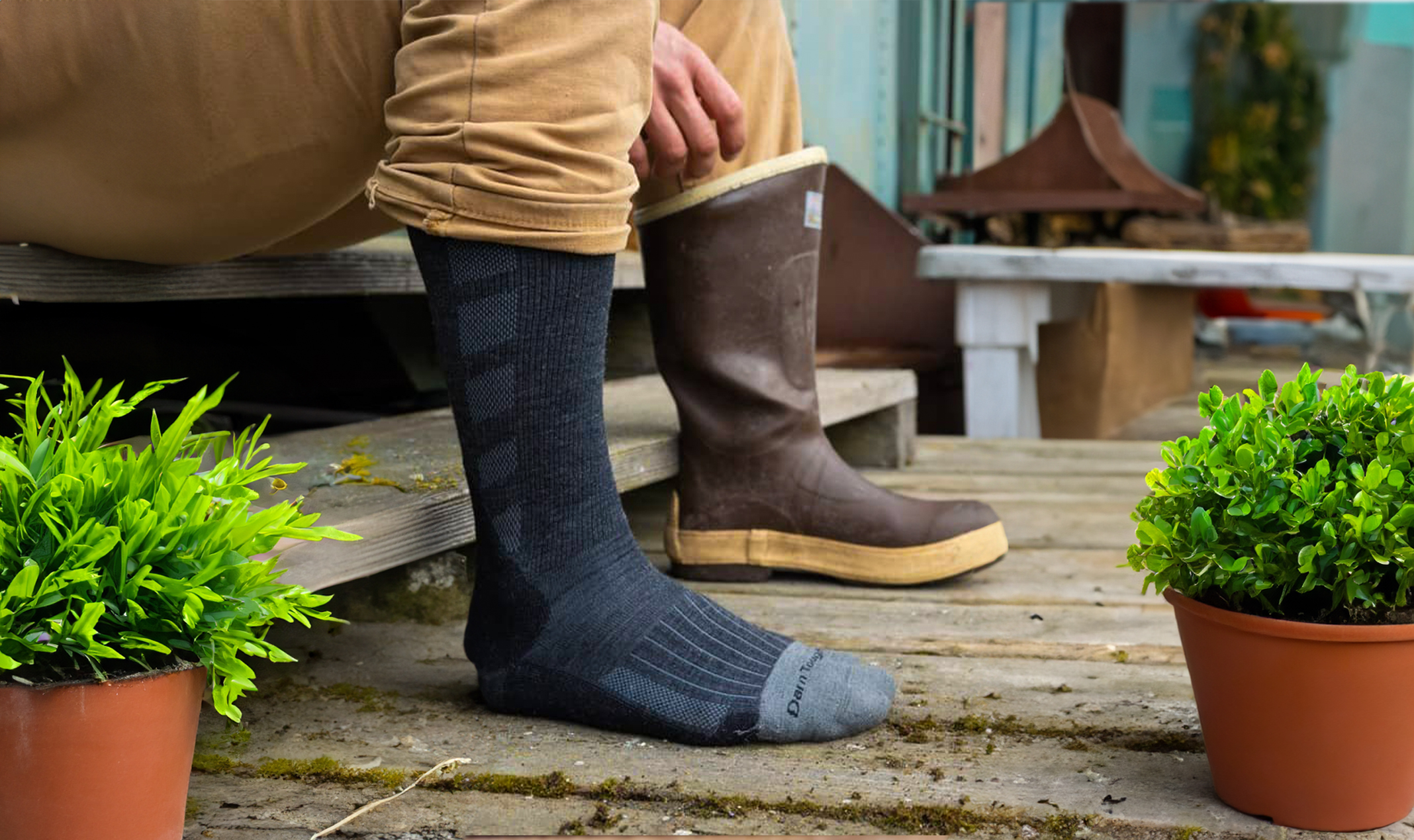
Before trying other choices, the first step is to wear the right socks. Sports or Thin socks won’t provide the grip that your feet need. Wearing thick socks with comfy padding on the heels and toes and with a good grip can stop your heels from slipping.
The top choice I found is the Camel City Mill Socks. While the Lightweight Wool Work Sock and the thicker Heavyweight Wool Work Sock are a bit expensive, They are very strong yet comfy.
▶ Step 1: Pick according to the Weather
Unless it’s winter or you’re living in a cold Area. The Camel City Mill Light Wool Work Sock will keep your feet cozy and warm. It’s designed to keep your feet cool in hot weather and is thick enough to provide warmth.
Carhartt Men’s Heavyweight Synthetic-Wool Blend Boot Sock
● Boot height; FastDry wicks away sweat; fights odor
● Temperature-regulating wool blend
● Heel, arch, toe, instep and leg cushioning
● Ribbed channels improve ventilation on leg
The Camel City Mill Warm Wool Work Sock is great for winter or cold places. Thick merino wool keeps your feet warm, and extra padding at the heel and toe helps prevent slipping in your shoes.
▶ Step 2: Check the Gaps between your feet and shoe
Wear thick socks with your boots to make them more comfortable and prevent slipping. After putting on the socks, check for any gaps in the toe and heel areas.
If you see there’s still some gap between your feet and the front or back of your boot then You’ll need to add some extra support. Before thinking about fixing the front or back part of the shoe. There’s another choice that not only stops your heel from slipping but also makes your feet more comfy and supported.
2. Shoe Insoles give Height and support to your feet
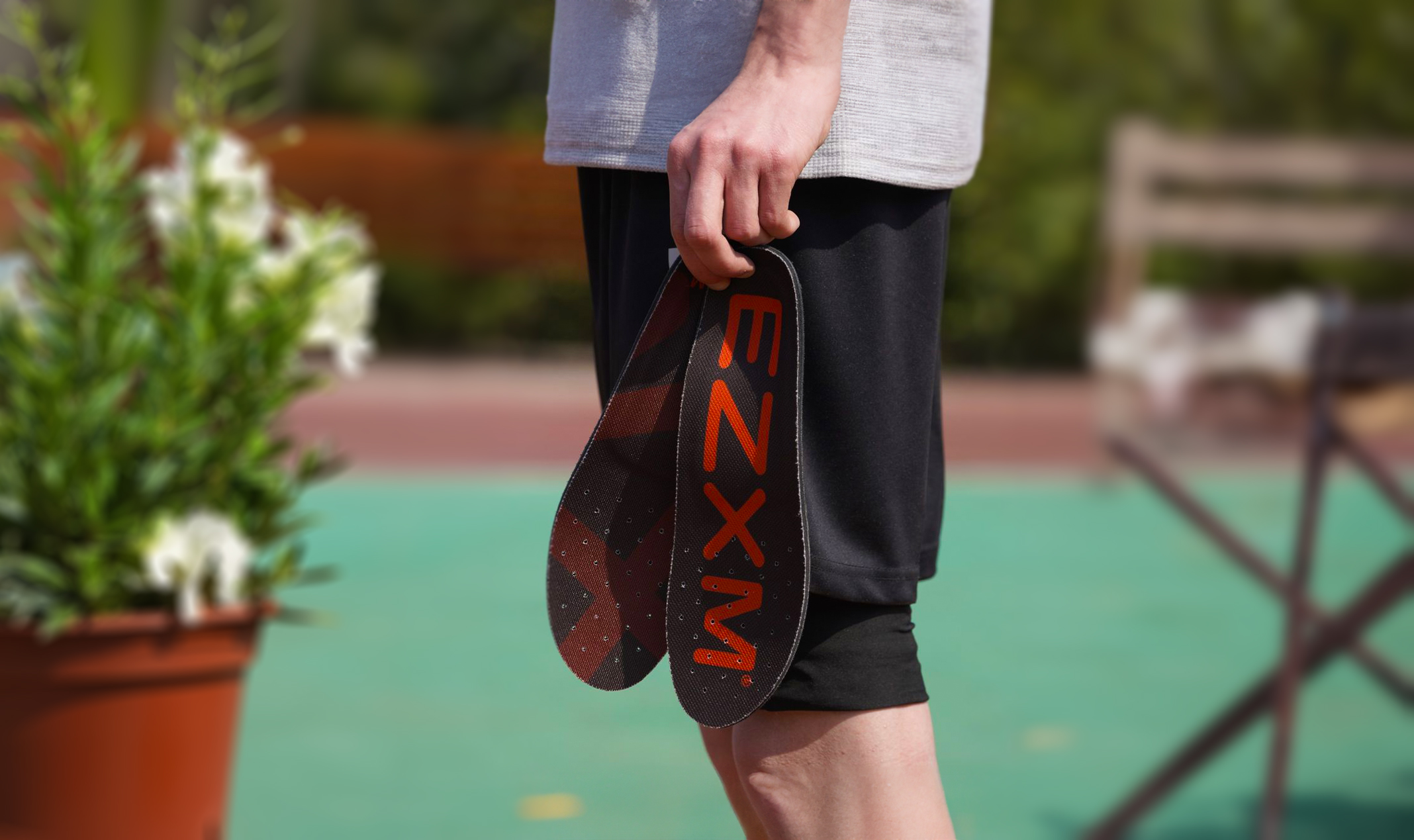
Shoe Insoles not only make your boots more comfortable and supportive but also make them fit better and stop any slipping at the heel. The smaller the space in your shoe, the better. Insoles also help keep your feet in one place, which is a bonus.
Dr. Scholl’s Work Insoles are a great pick for work boots. They give extra support to your arches and make your feet more comfortable, especially on long workdays. They’re shaped and hold their positions in your boots, which lowers the chance of your heel sliding.
▶ Step 1: Putting in Your Shoe Insoles
Many boot insoles fit different sizes, so it’s easy to find ones that match your boots. Dr. Scholl’s Work Insoles fit sizes 8-14, So, you just need to slide them into the bottom of your boots.
You’ll need to adjust them a bit to make sure they’re just right. This way, your feet will stay comfy when you wear your boots all day.
Dr. Scholl’s Work Insoles (Pack) // All-Day Shock Absorption and Reinforced Arch Support That Fits in Work Boots and More (for Men’s 8-14
● Clinically proven to provide all-day superior comfort specially designed for men with hard-working feet
● Eliminates tired achy feet & legs to stay energized
● The only extended gel cushioning that reduces the impact & shock to muscles & joints from working on hard surfaces.
● Adapts to provide added comfort & energy return to keep you productive with its responsive cushioning
● New Polygiene StayFresh Technology provides odor control and keeps feet feeling fresh
Once you place the insoles in your boots, wear them and take a short walk. If you can’t feel the sides of the shoe inserts. When your feet feel comfy and well-supported, then your shoes are in the right position.
▶ Step 2: Check the Gaps in your boot
The insoles in your boots should go all the way from the back to the front. You shouldn’t feel like you’re struggling to keep your feet on them. If there are gaps at the front and back. Then the inner sole might move around, causing your heel to slip.
▶ Step 3: Combine Your Shoe Insoles with Work Socks
You’ll feel less sliding in your boots when your feet are a bit higher, and there’s less space for your foot to slip. It’s best to wear thick work socks with insoles for extra foot comfort. The socks will pad your boot around your foot, as well as at the heel and ankle.
Put your foot comfortably on a soft insole and wear thick work socks, such as Camel City Mill Heavyweights, to stop your heel from slipping.
3. Heel Pads
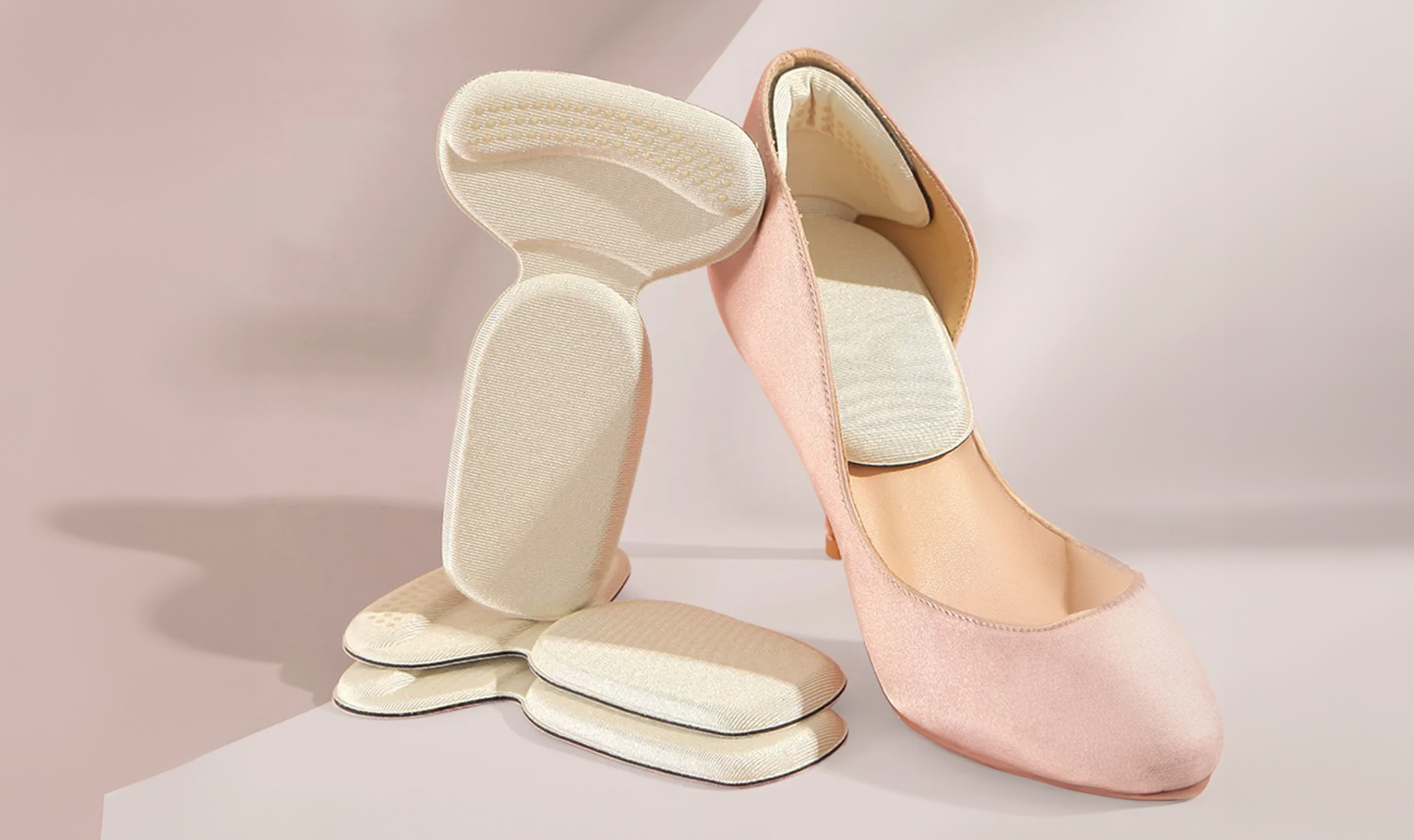
If your work boots have too much space at the heel, a simple and effective solution is to use heel pads. A heel pad makes the gap between your heel and the back of your boot smaller, reducing slipping and rubbing by providing extra grip. They’re simple to put on, stay in place, and are affordable.
Dr. Foot’s Heel Grips are one of the top choices for work boots. They have a sticky back and a soft front, keeping them in place on your boot and reducing slipping.
▶ Step 1: Put the heel pad in the shoe
A heel pad is attached just like putting on a band-aid. Stick it inside your boots against the heel. You can use several heel pads, like Dr. Foot’s Heel Grips, on top of each other. If you want more padding, put one heel pad, then add more on top as required.
Dr.Foot Heel Grips for Men and Women, Self-Adhesive Heel Cushion Inserts Prevent Slipping, Rubbing, Blisters, Foot Pain, and Improve Shoe Fit – 2pairs + Extra 1 Shoe Horn (Black)
● HEEL PAIN RELIEF: The heel grips protect and support your heels from pain, blisters, and rubbing, and help keep your heel in place in your shoe.
● COMFORTABLE DESIGN: The soft, ergonomic design replicates the contour of your heels, cushioning them to prevent slipping, rubbing, blisters, and heel pain.
● HIGH-QUALITY MATERIAL: Super sticky backing is made from CROWN #513 double-sided tape to prevent slippage. Extremely comfortable foam with topped with microsuede ensures anti-slip protection.
▶ Step 2: Make sure the pad stays in the correct place
I discovered the best way to make sure the heel pad stays in place is to wear thick socks and walk around your house in the boots for a bit.
Make sure your shoelaces are tied firmly. When the shoe feels tight and your heel pushes against the padding, which holds it there. After putting it in position and making sure it’s secure, you can check if one pad is sufficient.
▶ Step 3: Say bye-bye to your heels slipping
Always wear the right work socks with heel pads for better comfort. Heel pads are a good way to stop slipping, and they’re easy to use. The only issue might be if you wear silky dress socks, as they can make your heel slide more easily.
4. Toe Pads
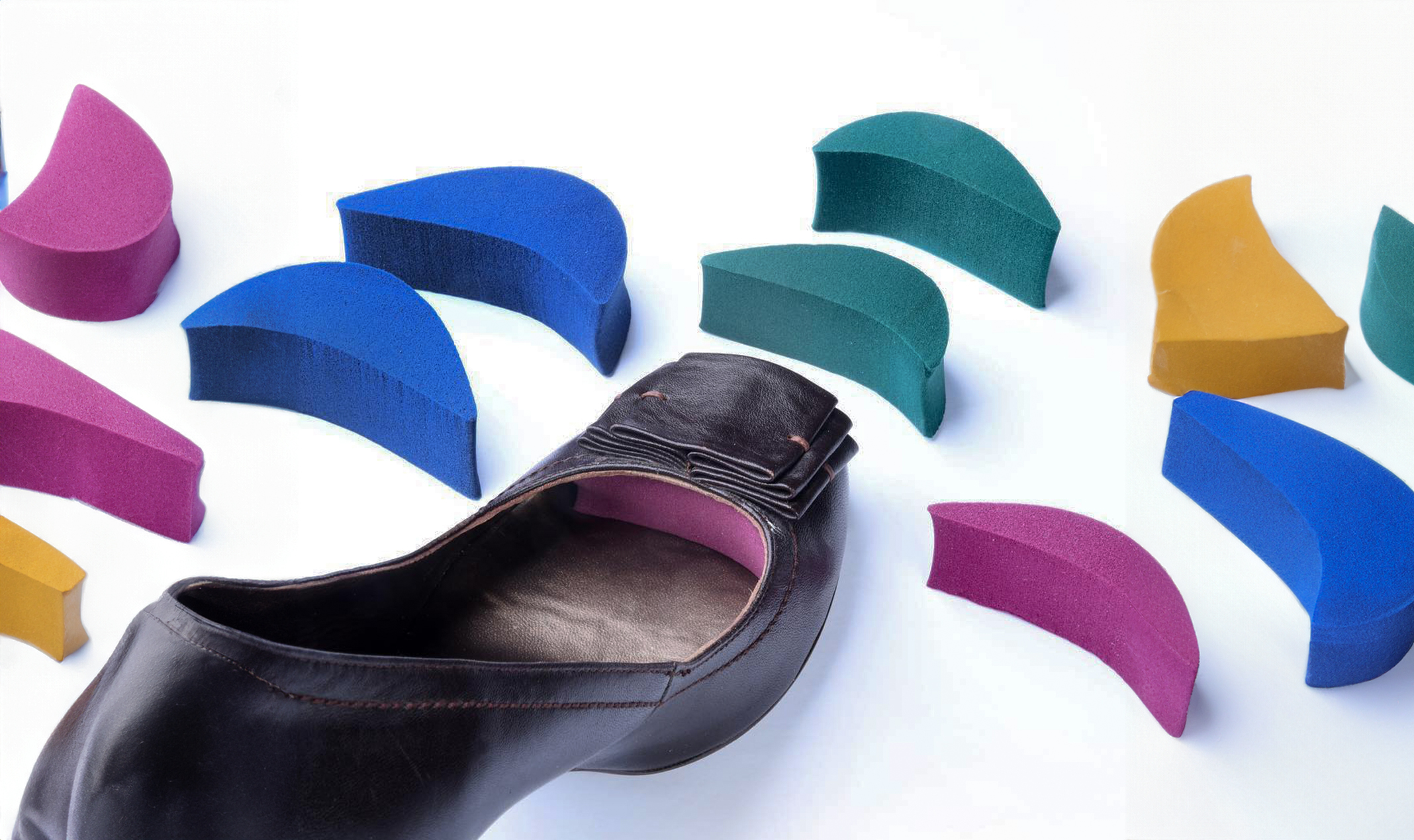
If you see a small gap between your heel and the back of your boot, and you’re still having trouble with your heel slipping. A spacious front part of your shoe might be causing you problems.
If there’s extra space in the front of your boots, your foot might slide forward when you step, and the boot could move back when you lower your foot. Sometimes, this can make your heel slide because your foot doesn’t get a good hold on the heel part.
It’s a little like putting on sandals with a raised heel. The flip is okay, but the flop is damaged. You can try putting tissue paper into your boots, but that gets uncomfortable and annoying fast. A better choice is to use toe pads like the Shoolex Shoe Filler.
▶ Step 1: Find the Correct Size
It’s best to use toe pads that come in different sizes or can be cut to fit. The Shoolex Shoe Filler is available in small, medium, or large sizes and can also be cut if necessary.
You want the front part of the shoe to fit closely against your toes without making them squeeze together too tightly. This could lead to lasting pain. If you want to shorten the toe pad. Trim them little by little to make sure you don’t cut off too much. Keep trying the pads in your boots and walk around to check the comfort.
▶ Step 2: Make sure the pads are fixed in their spot
After you feel comfortable, put them inside your boots to stop any possible movement. Using hairspray is a good way to keep the toe pads in place. This way, you don’t have to glue the Toe Pad (although glue works too), and the hairspray makes the pads sticky enough to stay put.
▶ Step 3: Put on your shoes and check again
After making sure your toe pad is in place. Wear the shoes to work for a day or two and check how they feel. You might have to adjust or trim a bit more for complete comfort. If your boots fit well, you won’t feel them sliding when you walk, and the risk of your heels slipping should be gone.
5. Tongue Pads
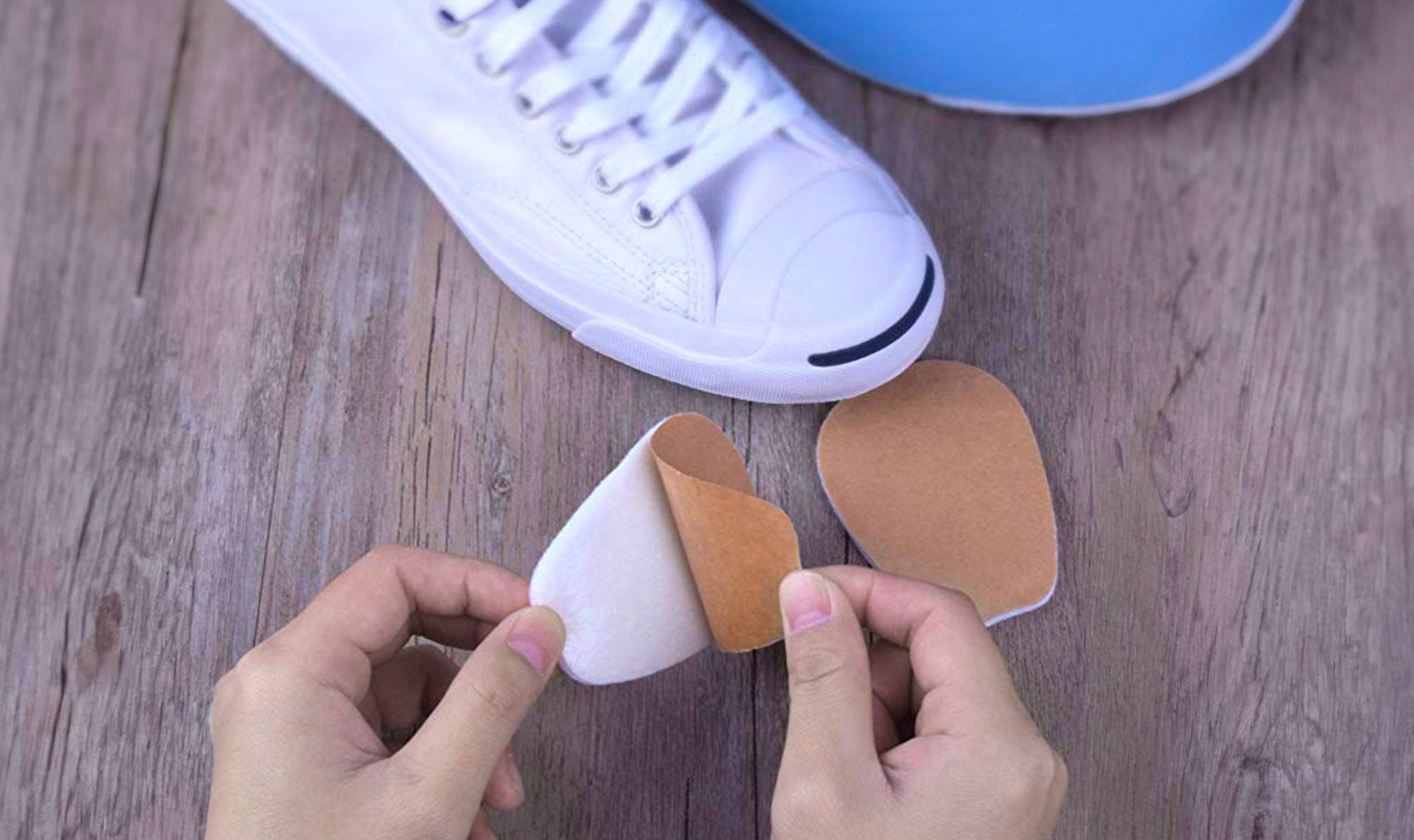
If your boots are still too loose, especially around the top part and laces. You can use tongue pads to make them fit better. Liam Shoppe Felt Tongue Pads are made to stick under your boot’s tongue, helping to stop slipping by adding padding to the top of your boot.
Tongue pads not only help stop slipping but also keep your feet from rubbing against the top of your boots.
▶ Step 1: Take off your shoelaces
The simplest way to put the tongue pad in the right place is to remove your laces, open your boot, and pull the tongue out as far as it goes. After you reach the bottom of the tongue, don’t take off the sticky part of the pad just yet. You might need to move it around later.
▶ Step 2: Try the pad to make sure it works before sticking it down
Move the tongue and change your laces. After you’ve tied your boots again, wear them and check how the tongue pad feels. If your shoes feel comfy and secure on your feet, you can take off the laces, remove the backing, and permanently attach the tongue pad.
If it requires more effort, do step one again until you feel satisfied, and then attach the pad to its spot.
▶ Step 3: Lace up your shoes and go!
When your tongue pads are fixed in place, you can move around easily, and you shouldn’t experience your heel slipping again. The tongue pads softly support your foot from the top, keeping it in place and preventing it from moving around.
When you wear thick work socks with your boots. You’ll notice right away that your feet won’t slip as much, and your work boots will feel even more comfortable.
Say Goodbye to Slipping!
If your heels slip into your work boots. It can start as a small problem but soon turn into real discomfort or even something worse, especially if you wear them all day. Fortunately, Stopping your heels from slipping is simple when you use the correct tools.
I used Dr. Scholl’s Work Insoles with my Camel City Mill Lightweight Wool Work Sock, and it worked well for my heel slipping. A basic heel grip might solve the issue for you.
FAQs
Q1. Does your heel slip in your boots?
Your heel shouldn’t move too much in your boots. It shouldn’t feel too tight, but it also shouldn’t feel like your boot is falling off when you walk. Sometimes, work boots and cowboy boots can slip at the heel, but you can stop it from happening.
Q2. Is it usual for heels to slip in new boots?
New boots can feel smoother and stiffer, causing more heel movement at first. After wearing them for a few weeks, the leather becomes more flexible, and the grip improves as the surface smoothes out. If your heels still slip, you can use insoles or a heel grip to prevent it.
Q3. Can a Cobbler repair the slippage of the heel?
If your boots are too big, fixing heel slippage completely can be a challenge for a cobbler. Simply adding a heel liner inside your boots can help reduce slippage. The cobbler might also add extra padding to the toe area once they figure out where the problem is. This can be more effective in fixing heel slippage than many solutions you can find in stores.


